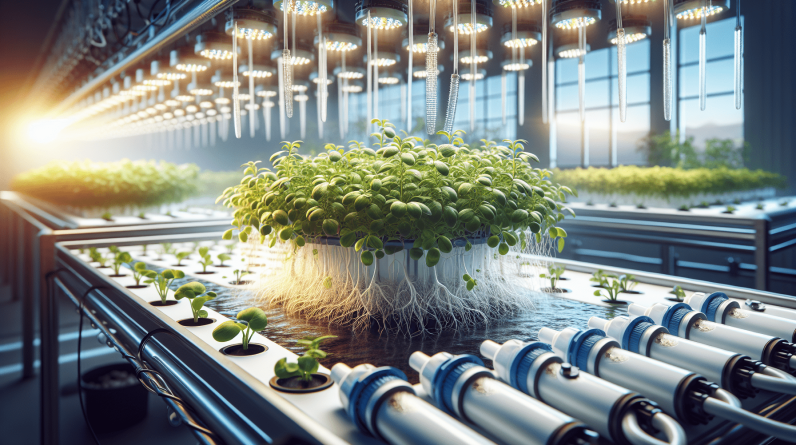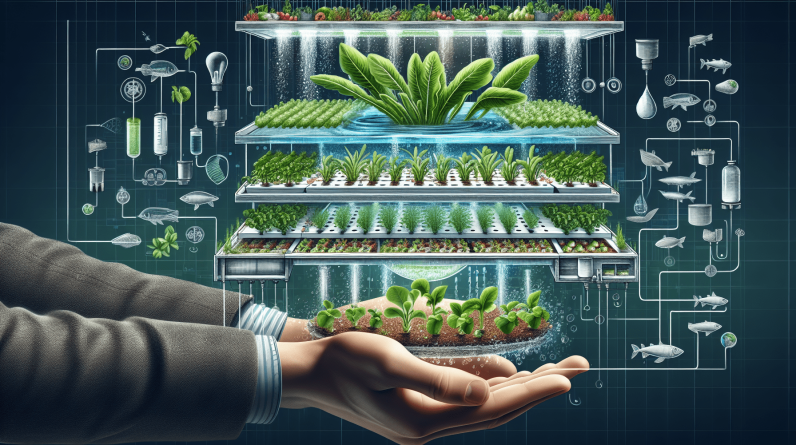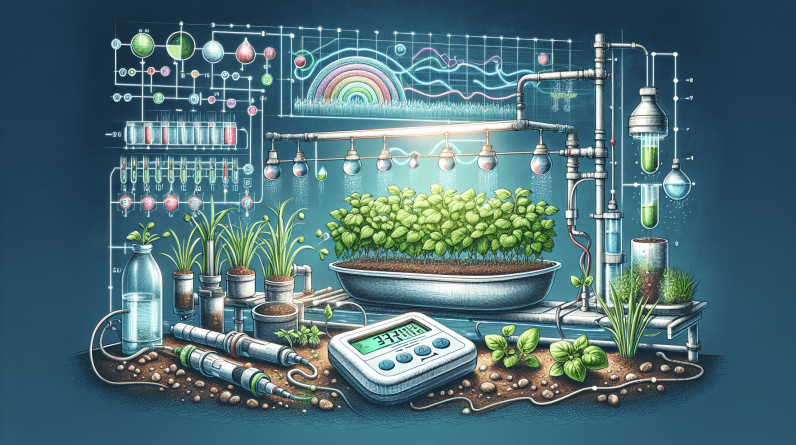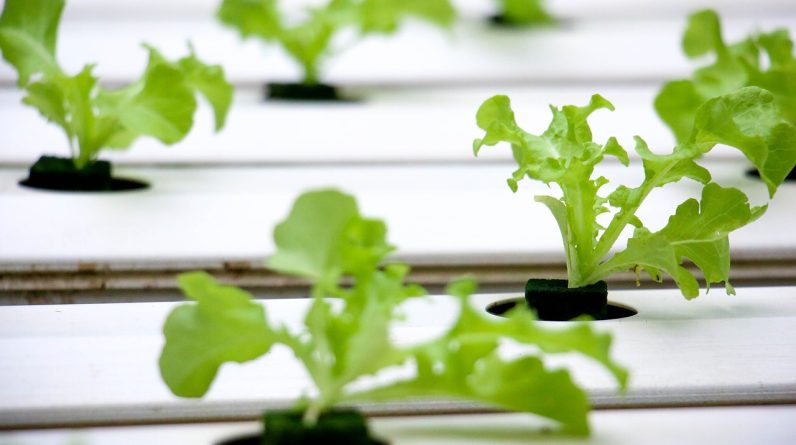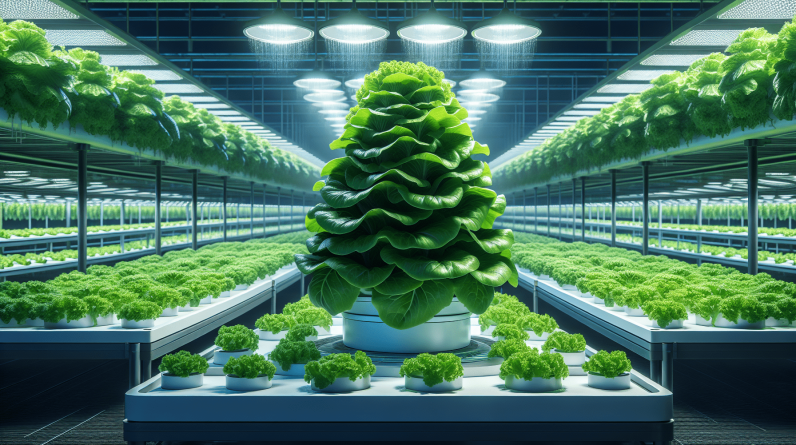
Have you ever considered trying hydroponic gardening? It’s a fantastic way to grow plants indoors or outdoors with minimal space and resources. One crucial aspect of successful hydroponic gardening is choosing the right nutrients for your plants. In this article, we will guide you through the process of selecting the best hydroponic nutrients based on plant needs, growth stage, and nutrient availability. Let’s get started!

Understanding Hydroponic Nutrients
Before diving into the selection process, it’s essential to have a basic understanding of hydroponic nutrients. Hydroponic nutrients are essential minerals and elements that plants need to grow and thrive in a soil-less environment. These nutrients are typically dissolved in water and delivered directly to the plant’s roots through the hydroponic system.
When choosing hydroponic nutrients, you need to consider the three primary types of nutrients that plants require:
-
Macronutrients: These are the primary nutrients that plants need in large quantities. They include nitrogen (N), phosphorus (P), and potassium (K), often referred to as NPK.
-
Secondary Nutrients: These nutrients are required in smaller amounts but are still essential for plant growth. Secondary nutrients include calcium (Ca), magnesium (Mg), and sulfur (S).
-
Micronutrients: Also known as trace elements, these nutrients are needed in very small amounts but play a crucial role in plant health and development. Micronutrients include iron, manganese, zinc, copper, molybdenum, boron, and chlorine.
Why Are Hydroponic Nutrients Important?
Plants need a diverse range of nutrients to carry out essential functions like photosynthesis, cell growth, and reproduction. In a hydroponic environment, these nutrients must be supplied in the correct proportions to ensure healthy plant growth. Without the right balance of nutrients, plants may suffer from deficiencies or toxicity, leading to stunted growth, poor yield, or even death.
Understanding the importance of hydroponic nutrients will help you make informed decisions when selecting the best nutrient solution for your plants.
Factors to Consider When Choosing Hydroponic Nutrients
Selecting the best hydroponic nutrients for your plants involves considering several factors to ensure optimal growth and yield. Here are some essential factors to keep in mind:
-
Plant Species: Different plant species have varying nutrient requirements based on their growth habits, nutrient uptake efficiency, and overall nutritional needs. It’s crucial to choose hydroponic nutrients formulated specifically for the types of plants you are growing to meet their unique requirements.
-
Growth Stage: Plants have different nutrient needs at various growth stages, such as vegetative growth, flowering, and fruiting. Look for hydroponic nutrient formulas designed to support the specific growth stage of your plants to promote healthy development and maximize yields.
-
Water Quality: The quality of your water source can impact the effectiveness of hydroponic nutrients. Consider testing your water for pH levels, mineral content, and potential contaminants to determine if any adjustments are needed to create an optimal growing environment for your plants.
-
Nutrient Balance: Maintaining the right balance of nutrients is crucial for preventing deficiencies or excesses that can harm plant health. Choose a hydroponic nutrient solution that provides a balanced mix of macronutrients, secondary nutrients, and micronutrients to meet the plant’s nutritional requirements.
-
Nutrient Formulation: Hydroponic nutrients come in various formulations, including liquid concentrates, powders, and pre-mixed solutions. Select a formulation type that is easy to use and compatible with your hydroponic system to ensure efficient nutrient delivery to your plants.
Consider these factors when choosing hydroponic nutrients:
Incorporating these factors into your decision-making process will help you select the best hydroponic nutrients that meet your plant’s specific requirements and support healthy growth and productivity.

Types of Hydroponic Nutrient Solutions
Hydroponic nutrients are available in different formulations to suit various types of hydroponic systems and plant needs. Here are the common types of hydroponic nutrient solutions:
-
One-Part Nutrients: These solutions contain all essential nutrients in a single bottle, making them convenient and easy to use. One-part nutrients are suitable for beginners and growers looking for a hassle-free nutrient solution for their plants.
-
Two-Part Nutrients: These solutions consist of two separate bottles of concentrated nutrients, typically a “grow” formula for vegetative growth and a “bloom” formula for flowering and fruiting stages. Two-part nutrients offer more flexibility and customization in adjusting nutrient ratios based on plant requirements.
-
Powdered Nutrients: Powdered hydroponic nutrients are available in a dry, water-soluble form that can be mixed with water to create a nutrient solution. Powdered nutrients are cost-effective and have a longer shelf life compared to liquid concentrates.
-
Organic Nutrients: For growers who prefer organic gardening methods, there are organic hydroponic nutrient solutions available that use natural and sustainable ingredients. Organic nutrients provide plant-based nutrients and beneficial microorganisms to support plant health and soil ecosystem.

Selecting the Right Nutrient Formula for Your Plants
Choosing the right hydroponic nutrient formula for your plants is crucial for achieving optimal growth, health, and productivity. To make an informed decision, consider the following factors when selecting a nutrient formula:
-
NPK Ratio: The NPK ratio refers to the proportion of nitrogen, phosphorus, and potassium in a nutrient formula. Different growth stages require varying NPK ratios to support plant development. Look for formulas with balanced NPK ratios suitable for the specific growth stage of your plants.
-
Nutrient Availability: Ensure that the hydroponic nutrient formula you choose provides all essential macronutrients, secondary nutrients, and micronutrients required for healthy plant growth. Verify the nutrient content and availability to meet your plant’s nutritional needs.
-
pH Stability: Some hydroponic nutrients may alter the pH level of the nutrient solution, affecting nutrient uptake and plant health. Select a nutrient formula that maintains pH stability within the optimal range for hydroponic plants to prevent nutrient deficiencies or imbalances.
-
Chelation: Chelation is the process of binding essential micronutrients to organic compounds to enhance their absorption by plants. Choose a nutrient formula with chelated micronutrients for improved nutrient uptake efficiency and enhanced plant growth.
-
Additives and Supplements: Some hydroponic nutrient formulas may contain additives like vitamins, amino acids, seaweed extracts, or beneficial microbes to enhance plant growth and productivity. Consider nutrient formulas with added supplements that provide additional benefits to your plants.
Take these factors into account when selecting a nutrient formula:
By considering these factors and evaluating your plant’s specific needs, you can choose a hydroponic nutrient formula that supports healthy growth, improves yield, and maximizes the success of your hydroponic gardening endeavors.
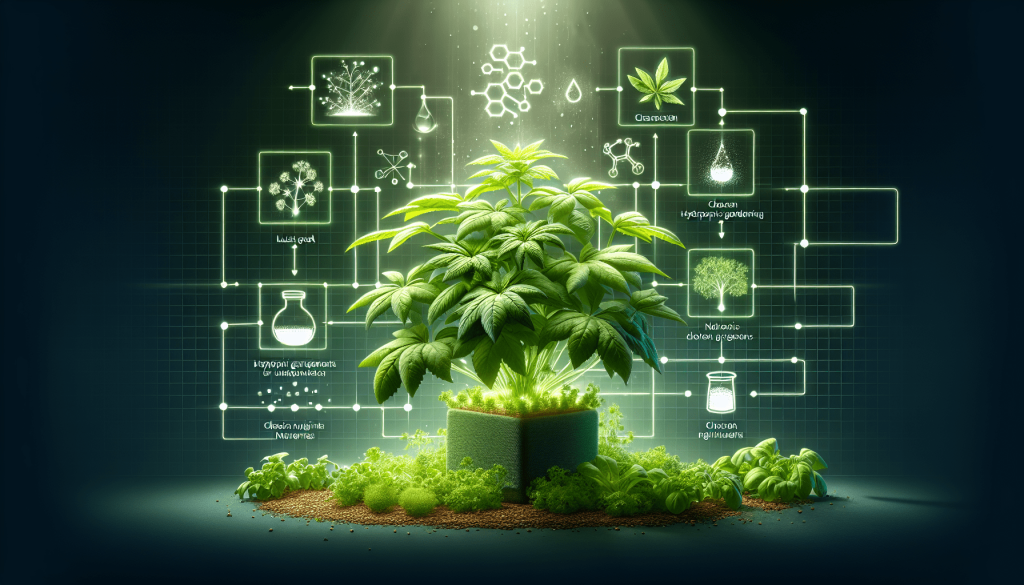
Nutrient Dosage and Application
Properly dosing and applying hydroponic nutrients is essential to prevent nutrient deficiencies or toxicities and promote healthy plant growth. Here are some tips to ensure the correct dosage and application of hydroponic nutrients:
-
Follow Instructions: Always read and follow the manufacturer’s instructions on the nutrient product label or packaging. Pay attention to the recommended dosage, mixing ratio, and application frequency to prevent overfeeding or underfeeding your plants.
-
Monitor pH Levels: Regularly monitor the pH level of your nutrient solution using a pH meter to ensure it remains within the optimal range for hydroponic plants (typically between 5.5 and 6.5). Adjust the pH as needed using pH up or pH down solutions to maintain nutrient availability for plants.
-
Observe Plant Response: Pay attention to your plants’ growth, color, and overall health to assess if they are receiving adequate nutrients. Signs of nutrient deficiencies or excesses include yellowing leaves, stunted growth, leaf curling, or leaf discoloration. Adjust nutrient dosage or formulation based on plant response.
-
Gradually Increase Dosage: Start with a lower nutrient dosage and gradually increase the concentration as plants grow and develop. Avoid sudden increases in nutrient levels, as this can shock the plants and lead to nutrient imbalances or toxicity.
-
Flush System Periodically: To prevent nutrient buildup, flush your hydroponic system periodically with clean water to remove excess salts and minerals that can accumulate over time. Flushing helps prevent nutrient lockout and maintains a healthy root environment for plants.
Adhere to these tips for proper nutrient dosage and application:
Following these guidelines for dosing and applying hydroponic nutrients will help you maintain a balanced nutrient supply, promote healthy plant growth, and optimize the overall performance of your hydroponic system.
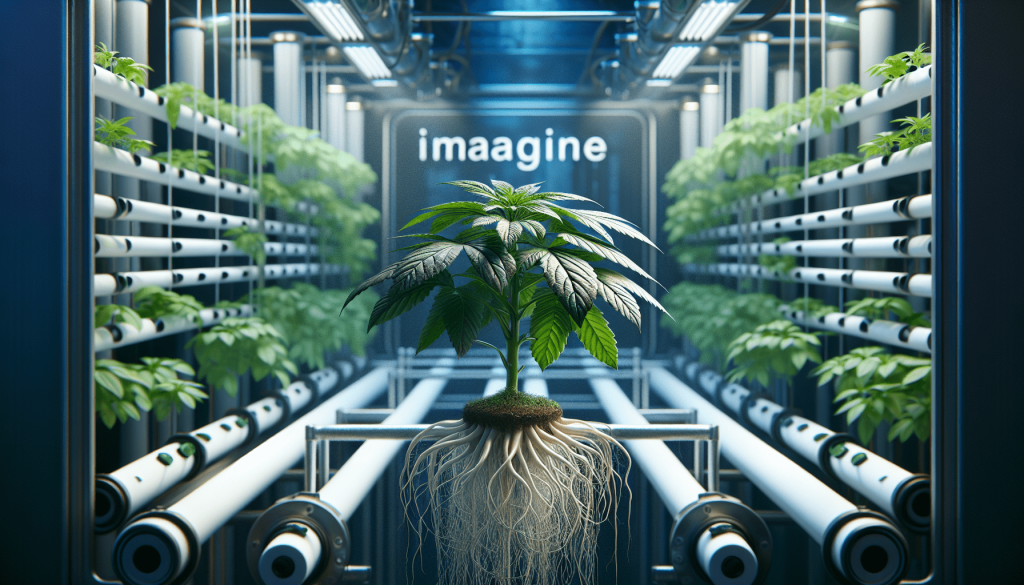
Conclusion
Choosing the best hydroponic nutrients for your plants is a critical step in ensuring successful hydroponic gardening. By understanding your plant’s nutrient requirements, considering factors like growth stage, water quality, and nutrient balance, and selecting the right nutrient formula, you can provide your plants with the essential nutrients they need to thrive and produce bountiful harvests.
Remember to monitor plant response, adjust nutrient dosage as needed, and maintain proper pH levels to optimize nutrient uptake and plant health. Whether you’re a beginner or experienced hydroponic grower, selecting the best hydroponic nutrients tailored to your plants’ needs will contribute to a flourishing and productive hydroponic garden. Happy growing!





